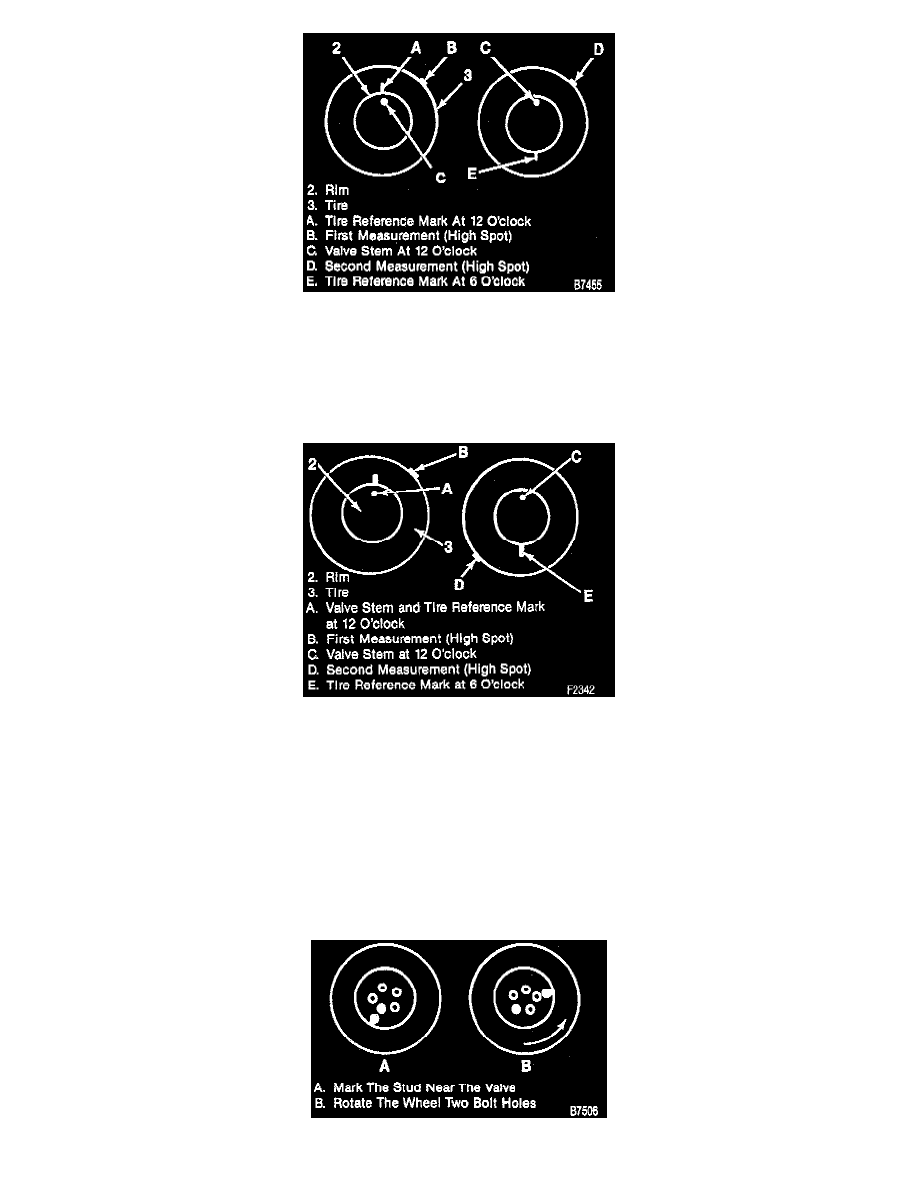C 2500 Truck 2WD V8-5.7L VIN R (1997)

2. If radial runout is the problem, take a measurement on the center tread rib. If the trend is uneven, wrap tape tightly around the tire, record the
runout magnitude, and mark the high spot location.
3. If lateral runout is the problem, take a measurement on the sidewall just below the edge of the tread shoulder. Record the runout magnitude, and
mark the high spot location.
4. Mark the tire sidewall at the valve location.
-
This is the 12 o'clock position.
-
The location of the high spot is always with respect to the clock location on the wheel.
5. Break the tire and wheel assembly down on a tire mounting machine and rotate the tire 6 hours (180 degrees) on the rim.
-
Reinflate the tire and measure the runout in question.
-
Record the magnitude and the location of the high spot (Valve stem is 12 o'clock.).
6. If the clock location of the high spot remained at or near the clock location of the original high spot, the rim is the major contributor to the runout
problem.
-
Confirm by removing the tire from the wheel and check the wheel rim runout.
-
If the wheel rim runout exceeds guidelines, replace the wheel.
7. If the clock position of the high spot is 6 hours from the original high spot, the tire is the major contributor to the runout problem.
-
Replace the tire.
8. After correcting the tire to the wheel vectoring, rebalance the wheel and tire assembly.
Tire and Wheel to Hub/Rotor Vectoring
